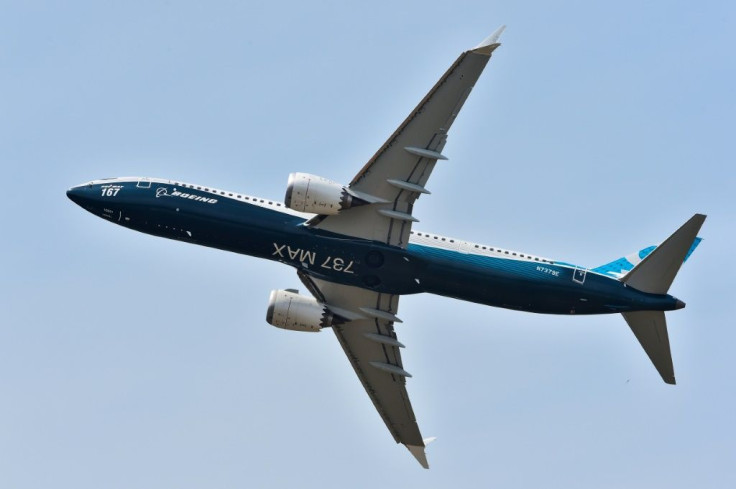Boeing's 737 MAX Woes Escalate After New Revelations

More than seven months ago, Boeing's (NYSE:BA) fast-selling 737 MAX family was grounded worldwide after the second of two fatal crashes caused by the activation of the jet's poorly designed Maneuvering Characteristics Augmentation System (MCAS). It took only a month for Boeing to develop an initial software fix for the problem. Thus, as of this spring, Boeing and its customers expected the 737 MAX to return to service by late summer or the fall of 2019.
Unfortunately, Boeing has experienced a slew of setbacks as it has attempted to rebuild confidence in the 737 MAX's safety among regulators, airlines, politicians, and the general public. This has led to repeated delays in the expected timetable for recertifying the 737 MAX. In the past week, additional explosive revelations have come to light that could trigger further delays -- and increase costs for Boeing.
Slow progress toward recertification so far
As recently as late May, it looked like the 737 MAX would be able to fly again by August. However, in June, FAA test pilots discovered a new potential vulnerability related to slow data-processing speeds under certain conditions, forcing Boeing to develop another software update.
This significantly delayed the timeline for returning the 737 MAX to service. Boeing hoped to submit its proposed software fix in September, paving the way for validation flights in October and a return to service (following formal recertification of the aircraft type and necessary maintenance work) by December at the latest.
Boeing made substantial progress toward completing the software update over the summer, although it wasn't able to submit the fix to the FAA by the end of September. Just last week, CNN reported that a group of domestic and international airline pilots was set to try out the new 737 MAX software in a final round of simulator tests in early November, with FAA observers watching. The FAA would have conducted its official certification flight later in the month, potentially leading to a recertification in December and a return to service in early 2020.
Unfortunately, two new revelations that have come out in the past few days could further complicate matters and lead to additional delays in recertifying the 737 MAX.
The 737 MAX scandal gets worse
First, Boeing alerted federal regulators to the existence of a 2016 instant-message conversation between Boeing's chief technical pilot and a colleague. In this exchange, the chief technical pilot described the MCAS system operating in an "egregious" manner during a simulator test. He also stated, "So I basically lied to the regulators (unknowingly)" in describing how the 737 MAX operated.
This statement seems to indicate that at least some senior staff were aware that the MCAS system posed a risk but that Boeing never addressed the problem. Making matters worse, Boeing discovered these instant messages in February. While it provided them promptly to the Department of Justice (which is engaged in a criminal probe), it didn't notify the FAA until last week. That has raised suspicions of a broader cover-up, although the company retorts that it discussed the MCAS system with FAA regulators on multiple occasions during the original certification process for the 737 MAX.
Second, The Wall Street Journal reported this weekend on an internal Boeing survey from November 2016. "...[R]oughly one in three employees who responded felt 'potential undue pressure' from managers regarding safety-related approvals by federal regulators across an array of commercial planes." This will only add to regulators' suspicion of Boeing's safety culture.
So far, regulators in the U.S. and Europe are saying that the discovery of these messages won't change the schedule for recertifying the Boeing 737 MAX. That said, this development does raise the risk of further delays, as regulators could face increased pressure and scrutiny from politicians.
Boeing stock is not safe
In the seven months after the 737 MAX was grounded, Boeing stock fell by a little more than 10%, indicating that investors didn't expect the company to sustain much long-term damage from this episode. By contrast, Boeing stock has plunged 10% in the two trading days since these new revelations became public.
Some analysts see this pullback as a buying opportunity. However, even now, Boeing stock isn't that cheap, trading for more than 20 times the company's 2018 earnings. While Boeing had been posting strong earnings growth prior to the 737 MAX grounding, there's no guarantee that it will be able to return to this trajectory after the troubled jet returns to service. For example, Boeing is on the hook for billions of dollars in customer compensation and airlines could use the delayed return to service as an excuse to cancel unwanted orders.
Moreover, if the 737 MAX's recertification is delayed again, Boeing would incur additional losses and its cash flow would fall even deeper into the red. It could even be forced to halt production temporarily. Until Boeing gets the 737 MAX back into service and demonstrates a rebound in customer demand for the model, investors should steer clear of the stock.
This article originally appeared in the Motley Fool.
Adam Levine-Weinberg has no position in any of the stocks mentioned. The Motley Fool has no position in any of the stocks mentioned. The Motley Fool has a disclosure policy.





















